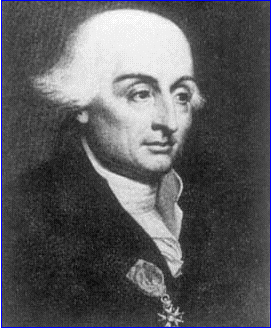The directory «Plots of stamps in the catalogue»
Lagrange Joseph Louis
(1736—1813)

Lagrange was a great Physicist and Mathematician of the 18th and early 19th centuries. He excelled in all fields of analysis, number theory and analytical mechanics. Lagrange's interest in mathematics began at a very early age when he read a copy of a book by Halley. Lagrange served as professor of geometry at the Royal Artillery School in Turin from 1755 to 1766 and helped to found the Royal Academy of Science there in 1757. In 1764 he was awarded his first prize of many when the Paris Academy awarded him a prize for his essay on the libration of the moon. When Euler left the Berlin Academy of Science, Lagrange succeeded him as director of mathematics 1766. In 1787 he left Berlin to become a member of the Paris Academy of Science, where he remained for the rest of his career. Lagrange survived the French Revolution while others did not. Lagrange said on the death of the chemist Lavoisier. During the 1790s he worked on the metric system and advocated a decimal base. He also taught at the École Polytechnique, which he helped to found. Napoleon named him to the Legion of Honour and Count of the Empire in 1808.
He excelled in all fields of analysis and number theory and analytical and celestial mechanics. In 1788 he published Mécanique analytique, which summarized all the work done in the field of mechanics since the time of Newton and is notable for its use of the theory of differential equations. In it he transformed mechanics into a branch of mathematical analysis. His early work on the theory of equations was to lead Galois to the idea of a group of permutations. In 1797 he published the first theory of functions of a real variable although he failed to give enough attention to matters of convergence.
France, 1958, Lagrange
France, 1958.02.15,  Paris. Langrange
Paris. Langrange